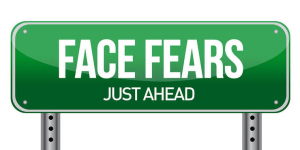The depiction of women in video games and the issue of sexism within the gaming industry is certainly not a new topic, but it is always in need of being addressed. It has been over a year and a half since Anita Sarkeesian first posted her Kickstarter for Tropes vs Women in Video Games, with the community responding with nothing but absolute hate and vitriol. An online game was made where players could beat up Sarkeesian, she was personally attacked online with threats of violence and sexual abuse, and Tim Buckley, creator of popular (depending on who you ask) gaming comic Ctrl Atl Del, and Kotaku writer, Luke Plunkett, created an incredibly offensive picture of Anita being chained naked and labeled as a sex toy for all of her male backers. Most gamers didn’t respond with criticisms of her argument or research methods, but instead cried that she was scamming people out of their money, with others personally outraged that she would DARE to examine the blatant issues of sexism and misogyny that have been present in gaming since the very beginning.
But before I begin discussing a potentially dangerous subject that no doubt will have me labeled as a “white knight” I should at least explain that I have my own reservations and criticisms of what Anita Sarkeesian is doing, especially in regards to her methodology, use of sources, and interpretations. It was particularly frustrating for me to see her be regarded as an “expert” on the subject for months before she even released the first video of her series. But that is perhaps a topic for another day and requires a far more in-depth discussion. The more important issue is that despite the fact the number of female gamers has been on the rise the past decade (a study by the Entertainment Software Association in 2013 estimated that roughly 45% of gamers are women), acts like this are, unfortunately, still common within the gaming industry.
In 2012 Miranda Pakozdi entered the Cross Assault video game tournament in hopes of winning the grand prize of $25,000. Her coach, Aris Bakhtanians, however, verbally berated her on camera, telling her to take her top off, and demanding to know her bra size. The incident came to the attention of the gaming media, and Bakhtanians eventually issued an apology. But in his apology he said something that was potentially much more upsetting; that “sexual harassment [was] part of the culture” of the fighting game community.
2013 saw the release of perhaps the most anticipated video game of all time, Grand Theft Auto V, with its release came another controversy involving the way women are treated in the gaming world. Gamespot editor Carolyn Petit wrote in her review of GTA V that the game was “profoundly misogynistic,” and had “little room for women except to portray them as strippers, prostitutes, long-suffering wives, humorless girlfriends and goofy, new-age feminists.” People responded, almost expectedly, in outrage, calling for Petit to be fired, even creating a petition for Gamespot to do so. Many defended Petit, but she was verbally assaulted online, with many people calling her the usual list of unsavory sexual slurs. To top it off, many people were disgusted that Petit had the absolute audacity to give the game a 9/10 (which, in the gaming world, is the equivalent of a slap in the face) and that her review was clearly distorted by her own personal bias and radical feminist views.
Are you beginning to see a trend here? These are just some of the more recent and infamous incidents of how women are treated in the gaming world, whether as analysts, reviewers, or competitors. Growing up I became familiar with the attitude held by many male gamers who were frustrated that not enough girls played video games and that females held a negative and condescending view of men who did play video games. But when women do admit to playing video games (or, God forbid, express an opinion about them) they are subjected to various forms of verbal abuse. Furthermore, if they are not personally attacked, they are labeled as either “casuals” or attention seeking “gamer girls.” Guys, you can’t have it both ways. You can’t bemoan the fact that there aren’t enough women interested in gaming and then immediately criticize those who do play games for whatever asinine reason you can come up with because they aren’t as “serious” of a gamer as you. It is essentially the same as stereotyping all male gamers as neckbeards who drink Mountain Drew, eat Doritos, live in their parents’ basements, wear fedoras, and believe in the mythical concept of the “friendzone.” It’s insulting, inaccurate, demeaning, and needs to stop.
But yet the gaming community does display positive inclinations towards strong representation (or at least respectable) depictions of women, which makes these displays even more frustrating. Just several days ago on Reddit’s popular subreddit, r/gaming, someone posted (and subsequently received roughly 1700 upvotes) a photo titled “Good Guy Ubisoft” in which they praised the company for not overly sexualizing or objectifying the main character of Assassin’s Creed III: Liberation, Aveline de Grandpré. Many gamers praise games like Beyond: Good and Evil because of the main character’s role as a strong, likable character, not as a sex icon. The Longest Journey series has an incredibly strong cult following, not only because of its humor and incredible stories, but because people love the characters April Ryan and Zoë Castillo. This past year alone saw the release of several major titles with either female leads or females who played a major secondary role, including Bioshock: Infinite, The Last of Us, Beyond: Two Souls, Gone Home, Remember Me, and the reboot of Tomb Raider. With the exception of Remember Me and Beyond: Two Souls (I love what David Cage is trying to do for the medium, but, boy, does he need to learn how to write a more coherent story), all these games were massive commercial and critical successes (Square Enix recently announced Tomb Raider just achieved profitability, so I consider that a success in my book).
Gamers loved the strength and depth that the characters Elizabeth and Ellie displayed, as they were far more than just sexual objects that were poorly developed or ignored entirely. This trend shouldn’t just be embraced by game developers, but male gamers who WANT to care more about the stories and the characters in their games. There are always going to be games that will just be mindless fun, just like there are always going to books and movies of the same nature. But it shouldn’t stop both the industry, and more importantly, the gaming community from realising that the hateful manner in which females are regarded and treated is deplorable, toxic, and needs to change. It’s bad enough the gaming community is under constant attack by the media for “indoctrinating” the youth of our nation, but do we need to develop a reputation as an exclusionist boys club? Guys, women aren’t a threat and despite your fears, they certainly aren’t trying to take over the industry and demand everything conform to fit their own “radical” feminist views. They just want to feel like they are part of a community for something they love and enjoy; one that values its members, regardless of their sex.
Keegan Malcolm
Images: Featured







